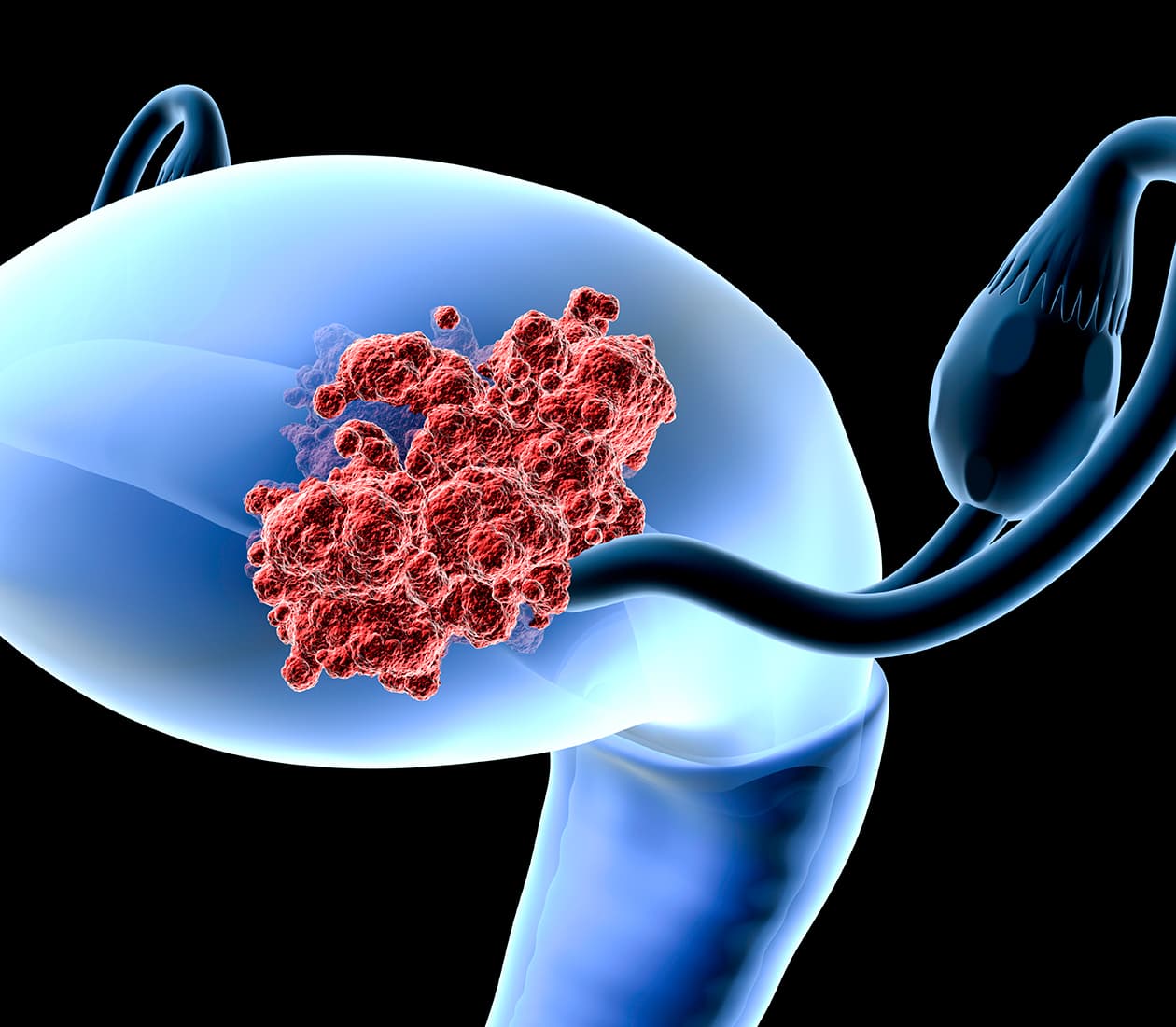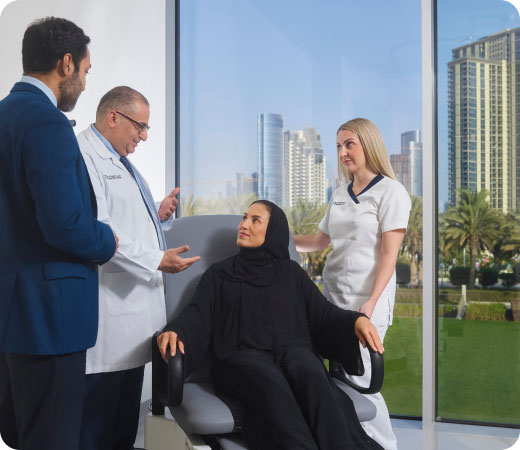
The Uterine Cancer Program at Cleveland Clinic Abu Dhabi’s Cancer Institute provides care for women during what can be a very difficult time. We offer a truly collaborative approach to cancer care, close to home. We use the very latest diagnostic and treatment techniques, supported by highly specialized and compassionate care; a very important differentiating factor when treating uterine cancer and an essential part of improving outcomes for patients.
Uterine cancer is the fourth most common cancer among women in the UAE, and the most common cancer that affects the female reproductive system.

Our female-only, multidisciplinary team is led by one of the region’s only female Gynecologic Oncologists, Dr. Stephanie Ricci. She is a specialist in the treatment of female cancers, and one of only a handful in the UAE. Treatment for uterine cancer by a gynecologic oncologist is extremely important as they have the dedicated training, specialist experience and technical skills needed to diagnose and treat the cancer as effectively as possible. Dr. Ricci qualified in the US and spent 6 years at Cleveland Clinic in the US. She has dedicated her career to helping women affected by cancer.
Our multidisciplinary approach brings together a team of experts to provide coordinated and exceptional patient care to those diagnosed with gynecologic cancers. The team meets regularly as a multidisciplinary tumor board to discuss each patient and ensure the best treatment options are considered for each individual.

The uterus forms part of a woman’s reproductive system. During pregnancy, the baby will grow in the uterus. It has a top part, called the body, which is where uterine cancer develops. The lower part is the cervix – cancer that forms here is referred to as cervical cancer.
Uterine cancer refers to cancers of the uterus or womb. There are two types of uterine cancer:
The Uterine Cancer Program at Cleveland Clinic Abu Dhabi treats women diagnosed with all forms of uterine cancer. Our team of female specialists are highly trained in a variety of diagnostic techniques and state-of-the-art therapeutic treatments.

The symptoms of uterine cancer can be similar to lots of other conditions, especially those that affect the reproductive organs. If you have an unusual pain, discharge or bleeding, always talk to your doctor. A timely and accurate diagnosis is very important to ensure you get the right treatment.
Common symptoms include:
The exact cause of uterine cancer is not yet known, but there are a number of risk factors that put you at an increased risk.
Most risk factors for uterine cancer are related to the balance of the hormone's estrogen and progesterone. Things such as morbid obesity, polycystic ovarian syndrome or some estrogen therapies can affect this balance. Lynch syndrome, a genetic disorder, is also a risk factor but is not related to hormones.
Other risk factors can include:
Other conditions that increase risk:
Gynecology history
Treatment for other conditions
If you think you may be at risk, talk to your doctor to find out what you can do to decrease your risk.

If you visit your doctor with any of the symptoms of uterine cancer, they will discuss the symptoms with you in details, and ask about any risk factors that you may have, including family history. They will then perform a physical exam, including an exam of your pelvic area.
There are a number of tests that your doctor may perform to confirm a diagnosis of uterine cancer. These include:
Please note, a pap test can detect abnormal cells on the cervix only. It cannot screen for, or be used to diagnose, uterine cancer. If endometrial cancer is diagnosed, your doctor will need to know which type it is, so they can decide on the best possible treatment.
The exact treatment plan for uterine cancer will depend on the type of cancer you have and your overall health. Treatments might include:
Most women diagnosed with endometrial cancer will need surgery. This is usually a hysterectomy, which involves a surgeon removing the uterus and cervix. The main types of hysterectomy procedures are:
At the same time as a hysterectomy, a surgeon may also perform two other procedures:
The side effects of surgery for uterine cancer might include infertility and the menopause, along with the symptoms associated with it.

Uterine cancer can’t be prevented but there are things you can do to reduce your risk. These include maintaining a healthy weight and controlling diabetes properly. Oral contraceptives might also offer protection against uterine cancer.
There is no screening test for uterine cancer, but if you think you are at high risk, talk to your doctor about regular checks.
Endometrial cancer is usually diagnosed at an early stage, as women notice the symptoms such as unusual bleeding. If diagnosed early, and the cancer hasn’t spread to other organs, it can be cured by removing the uterus.
If you notice anything unusual, such as bleeding or spotting, always talk to your doctor.

Our female-only, multidisciplinary team of caregivers includes:

Speak with our Contact Center for assistance
Request an Appointment 800 8 2223 International Patients